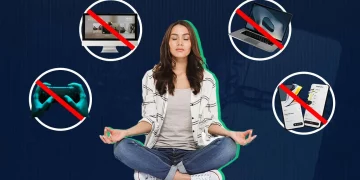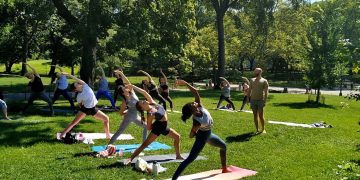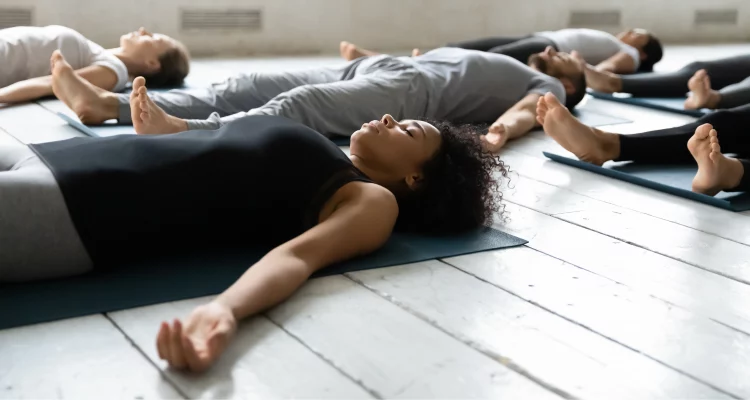In today’s world, rest is often viewed with suspicion. We live in a society that rewards busyness, productivity, and constant movement. In this culture, being “busy” is often equated with being “valuable.” The more you work, the more you achieve, and the more you’re seen as deserving of success and recognition. This is the mentality of hustle culture, which encourages the idea that every waking hour should be spent working, striving, or achieving.
But what if we’ve been sold a lie? What if rest—true, intentional rest—isn’t a luxury, but a radical act of self-care that is absolutely necessary for our well-being, productivity, and long-term success? In this article, we will explore why rest is not a sign of laziness, but a fundamental part of a balanced and high-functioning life. We’ll also look at the science behind rest and how it directly impacts our ability to be creative, solve problems, and perform at our best.
Introduction: Challenging the Hustle Culture Narrative
In the age of constant productivity, it’s easy to feel guilty when we aren’t “doing” something. Social media, work culture, and even well-meaning friends and family often push us to keep moving, keep striving, and keep grinding. The underlying message is clear: the more you hustle, the more successful you’ll be.
But this mindset has a dark side. It breeds burnout, anxiety, and mental exhaustion. Over time, constantly pushing ourselves to be productive without taking the time to rest leads to physical and emotional depletion. In a culture where being “busy” is seen as a badge of honor, many of us have forgotten that rest—whether physical, mental, or emotional—is just as important, if not more so, for overall well-being.
What if, instead of seeing rest as lazy or unproductive, we reframed it as an essential component of a successful, sustainable, and fulfilling life? What if we stopped buying into the narrative that our worth is tied to how much we work and how little we rest?
The truth is that rest is not the enemy of productivity; it’s the cornerstone of it.
The Science of Rest: Rest as a Necessity for Creativity and Long-Term Success
The notion that rest is lazy or unnecessary is not only misleading; it is scientifically inaccurate. Rest—whether in the form of sleep, relaxation, or downtime—is an essential part of the human experience, and it plays a critical role in our mental and physical health.
1. Rest and the Brain
When we rest, our brains engage in several important processes that directly impact creativity, decision-making, and problem-solving. Sleep, for example, is the brain’s time for repair, detoxification, and memory consolidation. During sleep, the brain processes and organizes information from the day, helping us retain memories and learn new skills. Without proper rest, our brains become foggy, less efficient, and unable to think critically.
Deliberate rest—whether through sleep or downtime—also gives our brains the time and space to engage in creative thinking. In fact, studies show that some of the most significant breakthroughs in science, art, and problem-solving occur when we step away from work and give our minds time to wander. In this state of rest or relaxation, the brain connects seemingly unrelated ideas and produces innovative solutions.
2. Rest and Physical Health
Chronic overwork without rest is directly linked to various physical health problems, including cardiovascular disease, obesity, and weakened immune function. The body’s stress response—elevated cortisol levels—was designed to protect us from immediate danger (like a predator), not for long-term, sustained stress. Over time, the constant activation of the body’s stress system leads to chronic inflammation, which is at the root of many long-term health conditions.
On the other hand, when we allow our bodies to rest, the parasympathetic nervous system (often called the “rest and digest” system) is activated, which promotes healing and regeneration. This is why taking time off from work, having a proper night’s sleep, or even practicing relaxation techniques like meditation, can boost our immune system, reduce inflammation, and support overall health.
3. Rest and Emotional Well-Being
Rest isn’t just physical; it’s also deeply emotional and mental. Constant hustle, pressure, and stress can lead to anxiety, depression, and emotional burnout. The act of taking rest, whether it’s a mental health day, a long walk in nature, or even a few minutes of deep breathing, can significantly lower stress hormones and improve mood.
Furthermore, taking breaks from work allows us to reconnect with ourselves. When we rest, we give ourselves the opportunity to engage in self-reflection, cultivate gratitude, and tune into our emotional needs. This helps us recharge emotionally, so we can approach our responsibilities with a clear and refreshed mind.
Types of Rest: Beyond Sleep—Social Rest, Sensory Rest, and Creative Rest
Rest isn’t just about sleep—though sleep is certainly a major component of it. There are many different types of rest, each serving a unique purpose for different aspects of our well-being.
1. Sleep Rest
Sleep is the most well-known form of rest, and it’s absolutely vital to our health. Quality sleep allows our bodies to repair, rejuvenate, and regenerate. It’s when we enter the deepest stages of sleep that our bodies release growth hormones, repair muscles, and process memories. For adults, 7 to 9 hours of sleep per night is recommended for optimal functioning.

2. Social Rest
Social rest is the type of rest that comes from spending time with people who uplift and energize us, as well as taking breaks from toxic or draining relationships. Spending too much time with people who drain us emotionally, socially, or mentally can leave us feeling exhausted, even if we’ve had a full night of sleep. Rest, in this sense, involves being intentional about the social interactions we engage in, ensuring they are fulfilling and supportive.
3. Sensory Rest
In today’s hyper-connected world, we are constantly bombarded with stimuli. The bright lights of screens, the constant ping of notifications, and the noise of the world can overwhelm our senses and lead to sensory burnout. Sensory rest involves disconnecting from these stimuli—turning off devices, reducing noise, and engaging in activities that calm the senses, such as walking in nature, listening to soothing music, or practicing deep breathing.
4. Creative Rest
Creative rest refers to the replenishment of our creative energy. For those in creative fields—writers, designers, artists, and musicians—this type of rest is essential. It’s easy to become burned out when constantly pushing ourselves to create, innovate, or perform at a high level. Creative rest can come in the form of activities that stimulate inspiration without requiring direct mental effort, such as experiencing art, taking a nature walk, or engaging in play.
Practical Integration: Scheduling Rest Without Guilt
So, now that we understand the importance of rest, the next question is: how do we integrate it into our busy lives without feeling guilty?
1. Reframe Rest as a Necessary Part of Productivity
First and foremost, it’s essential to reframe rest as a necessary and productive part of our lives, not a “luxury” or “waste of time.” If we want to perform at our best, rest is non-negotiable. In fact, taking intentional breaks actually boosts productivity, creativity, and problem-solving. Think of rest as an investment in your future success.
2. Schedule “Rest Appointments”
The key to making rest a regular part of your life is to schedule it. If you can block out time for work meetings, errands, and workouts, why not block out time for rest too? This could be something as simple as taking a 20-minute break in the afternoon, blocking off a weekend afternoon for relaxation, or scheduling a full day off once a month. Treat your rest time with the same respect as any other commitment.
3. Start Small
If the idea of scheduling rest feels overwhelming or difficult to implement, start small. Begin by scheduling 10-minute breaks during your workday to step away from your computer and take a breather. Gradually work your way up to more significant periods of rest, such as taking a day off or engaging in activities that rejuvenate you.
4. Let Go of Guilt
Finally, let go of any guilt surrounding rest. Remember: rest is not the opposite of productivity—it’s the foundation for it. The more we allow ourselves to rest and recharge, the better we will be at tackling our goals and leading fulfilling lives.
Call to Action: Block Out Rest Time for the Week Ahead
We challenge you to schedule “rest appointments” in your calendar for the upcoming week. Block off time for activities that nourish your body and mind, whether it’s sleep, socializing with loved ones, taking a walk, or engaging in creative pursuits. Notice how these rest periods affect your energy, mood, and productivity throughout the week. Share your experiences with us and let’s start a conversation about how to rest without guilt!

































